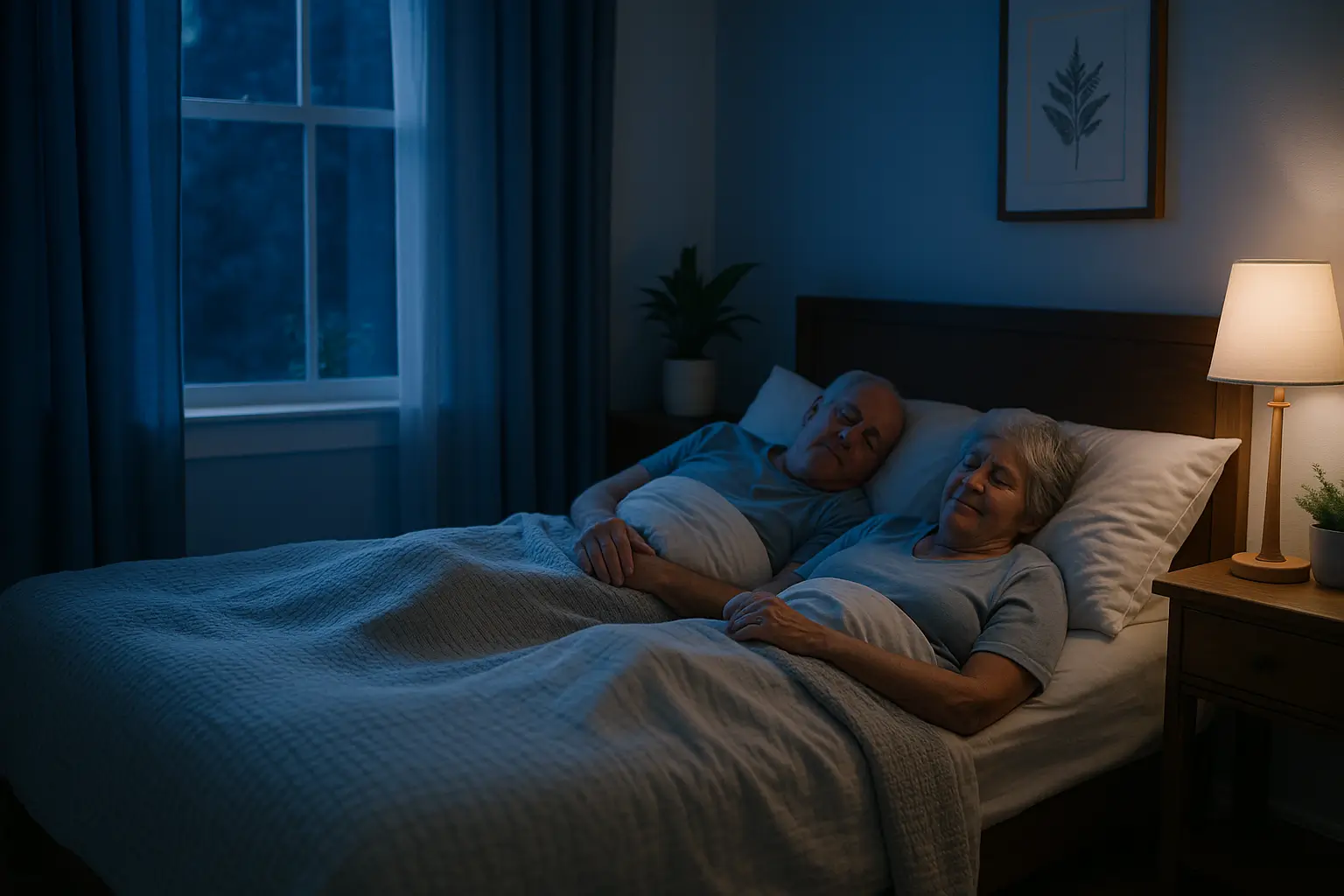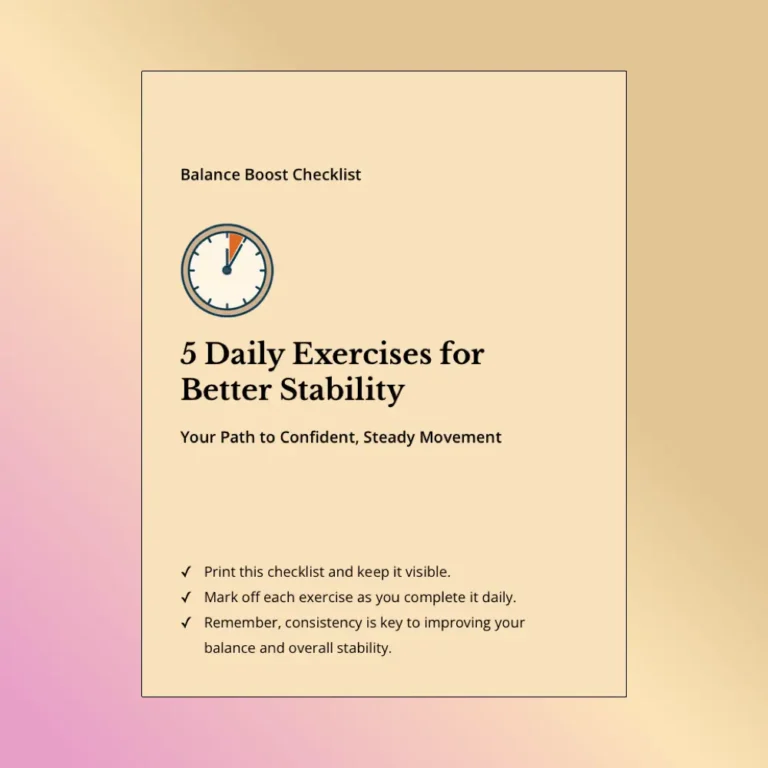

Sleep becomes increasingly important as we grow older. For many older adults, sleep problems aren’t just annoying; they can indicate deeper health issues affecting both body and mind. Understanding what causes sleep disorders in the elderly is key, and this article will explore these causes while offering practical solutions you can try tonight.
Sleep isn’t just resting; it’s an active process critical for maintaining health. While you sleep, your body repairs tissues, produces proteins, and releases growth hormones. Your brain also organizes memories and processes emotions during this time. Unfortunately, many older people experience declining quality of sleep, which affects their mood, thinking abilities, and overall energy throughout the day.
Long-term health problems significantly hinder restful sleep. Conditions like arthritis, diabetes, and Alzheimer’s can cause discomfort, pain, and thinking problems that disrupt sleep patterns. For instance, arthritis often causes joint pain that gets worse at night, making it hard to find a comfortable position for sleeping. Blood pressure issues can also affect sleep, creating a cycle where poor sleep and health problems worsen each other.
The medicines older adults take to manage health problems can also interfere with sleep. Common culprits include water pills (diuretics), blood pressure medications, and antidepressants. Older people should talk with their doctors about possible side effects of their medications, as some may cause sleep disturbances or make sleep problems worse.
Irregular sleep patterns can disrupt the body’s internal clock. Activities like drinking alcohol or caffeine before bedtime, falling asleep with the TV on, or using phones or tablets can all disrupt sleep. Creating regular sleep hygiene practices is fundamental for improving sleep quality. Poor sleep habits that develop over time can be difficult to change but doing so can dramatically improve total sleep time.
Lack of Physical Activity
Not getting enough exercise contributes not only to general health decline but also affects sleep. Regular physical activity helps regulate sleep patterns, making it easier to fall asleep and stay asleep.
Chair exercises for seniors can be particularly helpful for those with mobility issues.
Stress and Anxiety
Emotional burdens, family stress, money worries, or health concerns can cause racing thoughts at night, preventing relaxation and sleep. Finding effective ways to cope with stress is important for better sleep. Stress may cause changes in sleep architecture, reducing both the quantity and quality of sleep.
Social Isolation
Feeling lonely can increase anxiety and depression, both of which interfere with sleep. Staying socially connected helps create a sense of purpose and community, promoting sleep. This is particularly common in older adults who live alone.
Going to bed and waking up at the same time every day helps regulate your body’s internal clock. Try to maintain this schedule even on weekends. This consistency can greatly improve sleep quality over time. Most older adults need 7-8 hours of sleep each night, though individual needs vary.
Creating a sleep-friendly environment is extremely important for addressing sleep problems in older adults. Consider these elements:
According to research on sleep and brain health, the right sleep environment can significantly impact both the duration of sleep and quality of sleep for elderly people.
Regular aerobic exercise can improve sleep. Aim for at least 150 minutes of moderate exercise each week, but avoid strenuous workouts within three hours of bedtime. Gentle activities like walking, swimming, or chair exercises for seniors can be both effective and enjoyable for improving sleep problems in the elderly.
Substances like caffeine and nicotine can make it harder to fall asleep. Try to avoid these, especially in the hours before bedtime. While alcohol might help you fall asleep initially, it often disrupts sleep patterns later in the night, causing less sleep during the crucial deep sleep stages.
Setting up a calming pre-sleep ritual signals to your body that it’s time to wind down. Consider activities such as:
These activities help prepare both your mind and body for sleep, making the transition from wakefulness to sleep smoother and more natural. A consistent routine practiced every night becomes a powerful cue that helps train your brain to recognize when it’s time to sleep. Good sleep hygiene includes these relaxing activities as part of nighttime sleep preparation.
For many older adults, nighttime becomes a time when worries intensify. Try keeping a sleep diary or notepad by your bed to write down concerns or tasks for tomorrow, this helps get them out of your head. Simple breathing exercises can also help calm an anxious mind. Inhale slowly for four counts, hold for two, and exhale for six. Repeat this pattern several times to trigger your body’s relaxation response.
What you eat affects how you sleep. Heavy meals close to bedtime can cause discomfort and indigestion that interfere with falling asleep. Instead, try having dinner earlier in the evening and, if needed, a light snack before bed. Some foods contain natural sleep-promoting compounds: milk, bananas, cherries, and nuts all contain substances that may help initiate sleep.
The blue light from screens can inhibit melatonin production, making it harder to fall asleep. Try to disconnect from electronic devices at least an hour before bedtime to improve sleep quality. If you must use devices in the evening, consider blue-light blocking glasses or screen filters that reduce exposure to sleep-disrupting wavelengths.
What you do during the day affects how you sleep at night. Getting natural sunlight exposure, especially in the morning, helps set your body’s internal clock correctly. Keep naps short (30 minutes or less) and avoid napping late in the day. Stay hydrated throughout the day but taper off fluid intake in the evening to minimize getting up often during the night for bathroom trips.
Progressive muscle relaxation can help release physical tension that prevents sleep. Starting at your toes and working up to your head, tense each muscle group for five seconds, then relax for 30 seconds before moving to the next group. This practice helps you recognize the difference between tension and relaxation, making it easier to release physical stress that may disrupt sleep.
If sleep problems in older adults continue despite trying these approaches, it may be time to talk with a healthcare provider. They can evaluate underlying conditions and might recommend cognitive behavioral therapy for insomnia or conduct a sleep study to diagnose primary sleep disorders.
Some sleep issues require professional intervention. Obstructive sleep apnea, for example, often needs treatment with a continuous positive airway pressure (CPAP) machine or other medical approaches. Central sleep apnea is another condition that requires medical attention. A doctor can help determine if your sleep disturbances stem from medication side effects that could be addressed by changing dosage timing or switching to alternative treatments. The American Academy of Sleep Medicine recommends consulting a professional if sleep problems persist for more than three months.
Some older adults find relief with natural approaches to help them sleep better. Herbal teas like chamomile, valerian root, or passionflower have mild sedative properties that help some people relax before bed. Melatonin supplements may help reset sleep cycles for some individuals with age-related sleep changes, though you should always check with your doctor before trying any supplement, as they can interact with medications.
Sleep disorders in the elderly aren’t just an unavoidable part of aging; they often signal deeper health concerns. By understanding the causes and implementing sleep tips for older adults, seniors can reclaim their nights and improve their overall quality of life. Making sleep a priority can lead to better physical health, improved emotional wellbeing, and more energy for daily activities.
Remember that good sleep forms the foundation of good health. Don’t hesitate to reach out to your healthcare provider for personalized solutions to your sleep problems. With the right approaches and possibly some medical guidance, better sleep is achievable at any age, even as changes in sleep naturally occur with aging.
